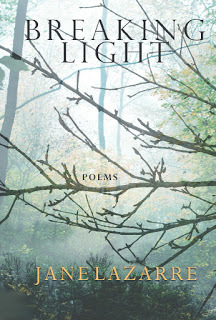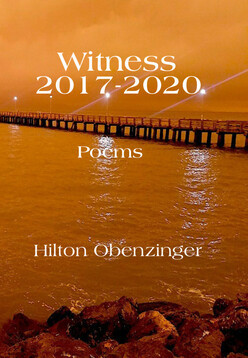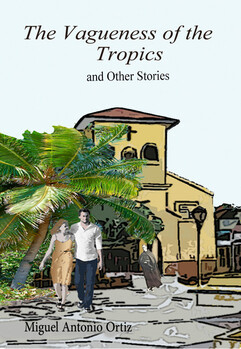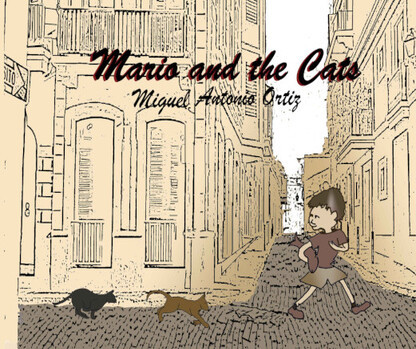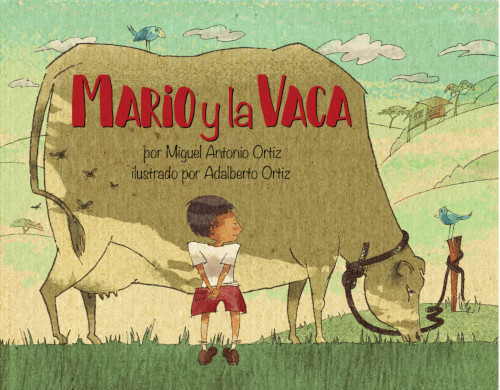Meredith Sue Willis's Blog, page 6
July 4, 2021
I Just Read Barack Obama's Memoir
I just finished the 700 page A Promised Land by Barack Obama. The giant nose-breaker of a book (if you try to read it in bed) was a birthday gift from my husband. I probably would never have bought it for myself, but I'm so glad I read it. It was, in some sense, a book I've been waiting for, a look at the political landscape from the top by a president with an active inner life, which I doubt many of them have.
Obama really is a fine writer–not a writer who necessarily goes as deep into the human soul as is possible, and a writer who is always performative in his awareness of history and all the people watching, both the public and the myriad of people he met as president. His acknowledgments pages suggest a big staff of researchers and checkers—he got a lot of help on the details and probably a lot of respectful editing. He thanks some people for helping with organizing, but I would bet that the general structure–things like ending this first volume with the assassination of Obama bin Laden–was his own thinking. As I said, he's good at this.
He has an unspectacular but powerful ability to narrate a story, and he is able to summarize brilliantly bits of background and parts of history we've all forgotten or never knew. He's good on thumbnail sketches of character and even appearance. His seemingly fair but damning sketch of France's Sarkozy are a good example of this–as are all of his sketches of international leaders, actually.
The most out-and-out fun parts are obvious: the early campaigns, the good luck and successes. The parts about the family learning to live in the White House. He seems generally honest, if careful to shed light rather than shade on people he worked with and respects, even loves, especially those whose careers are important at this moment– the prime example being Joe Biden, of course. He also has a neat trick of including near-foreshadowings of the coming of Trump, and choosing incidents and themes that contrast his presidencey, and, presumably, Biden's, with that of Trump and the Republicans.
He doesn't go as deep into his own motivations as some future biographer will no doubt do, but why should he? It's a presidential memoir, not a bildungsroman or a confession à la St. Augustine or J-J Rousseau. He is good on how he learns to make decisions in his progressive but practical way, and very good on what it's like to have so many explosive balls in the air at once in international affairs, natural disasters, internal politics, the search for bin Laden.
I do find Obama's belief that he was the One as more than a little arrogant and naive. Still, he learned fast–largely by knowing how to surround himself with good people, by team building.
Complaints? Not really. Again, the book is a fine example of its genre. There are people he is extremely careful of, notably Michelle, and of course the sexual connection you could see with them in pictures and videos isn't touched on. He does come to bed late a lot to find her asleep. The girls are pretty idealized, the way a fond dad who only sees them occasionally sees them. Weren't they ever obnoxious? My granddaughter is, and my granddaughter is just about perfect!
Biden may offer superior governance in the end, if he has extremely good luck and good health, and because he could hit the ground running so soon after being with Obama for eight years. But Biden could never have inspired people like the young man on the New Jersey transit train siting across from me who proudly opened his shirt and pulled up a section of his boxer shorts to show the Obama print fabric.
Chimamanda Ngozi Adichie did a good close review of the book in the New York Times (https://www.nytimes.com/2020/11/12/books/review/barack-obama-a-promised-land.html)
and I liked the review in The Guardian too. (https://www.theguardian.com/books/2020/nov/26/a-promised-land-by-barack-obama-review-an-impressive-but-incomplete-memoir)
June 26, 2021
Meredith Sue Williswww.meredithsuewillis.com ...
Meredith Sue Willis
www.meredithsuewillis.com
6-26-21
Dear Friends,
Some of you know that for many years I've been involved in a small cooperative press called Hamilton Stone Editions. It has an online literary journal, The Hamilton Stone Review. full of terrific poetry and prose , as well as an imprint called Irene Weinberger Books.
HSE and IWB have a sterling line-up of new books for Summer 2021. Take a look at these below, and also at the websites for their older (and still in-print!) publications: Hamilton Stone Editions and Irene Weinberger books.
Support working writers and independent voices!
Meredith Sue Willis
H\s
H A M I L T O N S T O N E E D I T I O N S
&Irene Weinberger Books
Present...
Jane Lazarre (author of many books including The Communist and the Communist's Daughter; Inheritance; and The Mother Knot) has a new book of poems:
Breaking Light
"There is a formality in these pages, a reliance on structure to contain the powerful yet often restrained emotions. Light, nature, mourning and love provide a deep and familiar comfort and stimulation that remain long after we've stopped reading."
From the Introduction, by Dr. Miryam Sivan
Jane Lazarre is the author of numerous works. Her first and most recent memoir, The Mother Knot and The Communist and The Communist's Daughter (Duke University Press) are published in Spanish by Las afueras of Barcelona as El Nudo Materno and El Comunista y La Hija del Comunista. Her stories and essays have been widely published in journals and online. She founded and directed the undergraduate writing program at the Eugene Lang College at the New School where she taught Creative Writing and Literature; she has also taught at the City College of New York and Yale University. Lazarre serves on the Board of Directors of The Brotherhood Sister Sol, a social justice youth development non-profit organization in Harlem, New York.
Hilton Obenzinger (author of Busy Dying, Treyf Pesach, and many other books) has poems about the quarantine, politics, and beyond:
Witness
Diane di Prima says: "I have been following Hilton Obenzinger’s work with delight and astonishment for over 40 years. He is a treasure. Funny, surreal, radical – he is the American Jonathan Swift."Michael Berkowitz in People's World says,"Hilton Obenzinger’s new book of poems Witness 2017-2020 bristles with righteous energy.... It captures the moments when a candid, often florid observer puts down his camera and joins, nay leads the struggle for meaning, justice, and change."Jonah Raskin says, "The poems in Witness call for reader participation. In stunning ways, they offer a surrealist take on the news, and invite readers to make some news of their own. They're also a kind of incantation meant to exorcise the unholy ghost of Donald Trump, whose name appears more than a dozen times in these pages — more than one might want— and to usher in a new era where all lives matter, where we all age with dignity and we all go into the future, no matter what it might bring. One doesn't expect any the less from veterans of the Sixties who have gone on dreaming the dream and who have gone into the streets over and over again over the past five-decades."
Hilton Obenzinger writes fiction, poetry, history and criticism. His books have received the American Book Award and other honors. His book How We Write: The Varieties of Writing Experience, is based on the series of "How I Write" public conversations with Stanford faculty and other advanced writers. His other books include Beginning: The Immigration Poems, 1924-1926, of Nachman Obenzinger, poems by his father translated from the Yiddish by Benjamin Weiner, edited by Hilton Obenzinger. His other books include the autobiographical novel Busy Dying, Running Through Fire: How I Survived the Holocaust by Zosia Goldberg as told to Hilton Obenzinger, an oral history of his aunt's ordeal during the war. His history of the fires of New York in verse was selected by the Village Voice as one of the best books of the year and nominated by the Bay Area Book Reviewer's Association for its award in poetry; This Passover Or The Next I Will Never Be in Jerusalem received the American Book Award of the Before Columbus Foundation. Born in 1947 in Brooklyn, raised in Queens, and graduating Columbia University in 1969, he has taught on the Yurok Indian Reservation, operated a community printing press in San Francisco's Mission District, co-edited a publication devoted to Middle East peace, worked as a commercial writer and instructional designer, taught writing, comedy, and American literature at Stanford University. He received his doctorate in Modern Thought and Literature at Stanford. Currently, he is Associate Director of the Chinese Railroad Workers in North America Project at Stanford University.
Miguel Antonio Ortiz has two new books: The Vagueness of the Tropics, Short Stories for Adults and And Mario and the Cats, for children:
Also don't miss
Learn more at Irene Weinberger Books or at AmazonMiguel Antonio Ortiz was born in Bayamon, Puerto Rico. He grew up in the South Bronx, and graduated from the High School of Music & Art and the City College of New York. He was an editor for Hanging Loose Press and Publications Director for Teachers & Writers Collaborative. In the business world, he worked as a computer programmer for Chase Manhattan Bank, Merrill Lynch and TIAA-CREF. Happily married for 39 years, he is the father of two sons. He currently lives in Park Slope, Brooklyn. Some words about his novel King of Swords: "It is not often that I finish a novel wishing that it had gone on longer. However, that was how I felt after finishing this beautifully written book by Miguel Ortiz." –William W. Bernhardt, English Professor, City University of New York "The technical proficiency of Ortiz's writing throughout the work is worthy of praise… his writing is lyrical without relying on cliché, expressive without bogging down the reader with too much description or explanation…. He handles very well the generational gap between his major characters, and equally well the manner in which the seeds of bitterness are sown." – Curled Up With a Good Book
Mario y la Vaca
por Miguel Antonio Ortiz
ilustrado por Adalberto Ortiz
and in English!Mario and the Cow
by Miguel Antonio Ortiz
illustrated by Adalberto OrtizSchool Library Journal says:
"A solid ... purchase ... with Latinx characters and settings"
May 18, 2021
Back in New York City!
5-18-21
I've been planning this since last summer: a quick run into the City to make sure it's still there, and that I can still find my way around. I took New Jersey Transit in for just a tiny visit to see the changes in Penn Station (a terrific new escalator with a clear roof to 33rd and Seventh Avenue!)--and above all, the new Moynihan Station for Amtrak and the Long Island Railroad that used to be crammed in below street level with NJ Transit.

And it is lovely. It isn't as vast as Grand Central Station or the Oculus Mall at the World Trade Center downtown, but it is a beauty--an honoring and uplifting of the public that uses it. It is in what used to be the Farley Building, which was the vast and majestic twin of the old Penn Station across the street, replaced by Madison Square Garden and the low-ceilinged warren of tracks and crowds below. So this is a return to a kind of public space from the old days (it was an awfully nice old school post office too). It's going to have a food mall and and all the necessities--and already has both a Starbucks and a Blue Bottle, but it is already showing off the best roof around plus an amazing light fixture at the 31st Street (I think) made of upside down skyscrapers. The most fun light fixture I've ever seen for adults. What my phone snapshot doesn't come close to capturing is the glow and the volume.

I made a big walking circuit to explore Penn Station to be sure I could find my way hither and yon: a reconfigured waiting room; same old bathrooms; most but not all of the old places to grab coffee (and sushi and frozen yogurt and pizza and donuts, lots of donuts). It just made me happy to be there: families traveling, a special space for the Red Caps, kids with too few clothes but many tattoos, scuzzy people, handsome people. Most everyone masked.
May 10, 2021
Books for Readers #214 Now Available!
Brand New Issue of
Books for Readers--#214!
Reviews of books by Fatima Shaik, Brit Bennet, Oyinkan Braithwaite, Robin Hobb, Dickens, Willliam Kennedy, John Le Carré, Helen Weinzweig, Marguerite Yourcenar, Robert Reiche, and more. Pieces by John Loonam on Elana Ferrante, Carole Rosenthal on Philip Roth, and Peggy Backman on Russell Shorto.
April 5, 2021
Thoughts About Religion for Easter 2021
Easter is the Hope Holiday. All the religions I've encountered have powerful, human strengths: Buddhism focuses on embracing, not running from, what is going on right now. Judaism performs its most important rituals within the family, and instead of building inspiring architecture, offers study and truth-wrestling. And Christianity, the faith I was raised in, offers hope of reconciliation even at the utmost extremity. This, the vital humanist message of Easter.
March 22, 2021
The Intimacy of Vivid Description
An exchange on the Intimacy of Vivid Description--and What It's Good For....
This is a link to a piece in A Journal of Practical Writing--a short consideration of the important for writer and reader of vivid description.
February 25, 2021
New Books for Readers Newsletter #213 just posted!Paule...
New Books for Readers Newsletter #213 just posted!
Pauletta Hansen reviewed by Bonnie Proudfoot; a conversation about cultural appropriation in fiction; T.C. Boyle; Eric Foner; Attica Locke; Lillian Roth; The Snake Pit; Alice Walker; Lynda Schor; James Baldwin; True Grit, and more.
January 23, 2021
After Reading Eric Foner's A Short History of Reconstruction
This is a kind of book report, but reading history is often how I organize my understanding of politics. I read a few books of history a year, usually because it seems like a good story, or--as in this case--because I'm looking for parallels to today.
Sometimes I read history looking for evidence that it was even worse back then.
I may decide to read Eric Foner's unabridged book on Reconstruction another time, but this one, at 260 pages, gave me the overview I wanted.
Here are my biggest takeaways: first, the Radical abolitionist Republican-led Reconstruction after the Civil War ended gave ten years of significant political advances (fewer economic advances) to black men and by extension black families. There were black sheriffs, police, voting, the teaching of basic literacy, Black state legislators and members of Congress. Laws were passed giving basic civil right to freedmen. The emphasis was, however, all on the vote and politics: Americans have always, apparently, looked askance at land redistribution. Property seems to be viewed as sacred, especially by the affluent and wealthy.
My next big takeaway was that much of what was forced on the South by the Federal government actually benefitted all working people, including those in the Appalachian Mountain South. This included especially things like public schools and libraries. The Jim Crow laws really weren't put in place till the 1890's. Segregation is not such a deep and ancient tragic flaw, then, as so many twentieth century writers would have us believe–I'm looking at you Bill Faulkner.
Federal laws were put in place, flagrantly ignored in the South, and much later used in the twentieth century as the basis for civil rights cases.
Then there was the incredible viciousness of the first iteration of the Ku Klux Klan (founded in 1865, extended into almost every southern state by 1870). Over and over men who were considered leaders were murdered, sometimes in broad daylight. Under President Grant, laws and enforcement by troops quashed it, but it was replaced by other organizations and tactics, such as, after the federal government withdrew, Jim Crow laws and suppression of Black voting and opportunities.
Meanwhile, during the 1870's and 80's the North was industrializing with enormous speed, with huge numbers of immigrants, the beginning of unionizing and big strikes and equally big union busting. The workers in the North rarely made any common cause with the freedmen.
Finally, the Republican party made its turn, toward what was called reform (to end corruption and put the "Best Men" into high government positions). They believed in minimal interference from the Federal government (this begins to sound like the GOP I know). Schools, libraries, enforcement of all kinds should be done by the States– and that was the end of Reconstruction in the South and the beginning of the "Redemption" of white supremacy. And the Republicans became the party of big business.
The thing that continues to amaze me is how my own public school education in industrial West Virginia never even touched on labor issues at a time when the United Mine Workers were very powerful, let alone the complexities and brutality of Reconstruction. Each time we studied American history, we stopped with the Civil War. If Reconstruction was ever mentioned, it was as a bad time when bad people exploited the poor crushed Southerners, and gross black men dressed up in red silk waistcoats and aped white gentlemen. Looking back, I am appalled, but no longer astounded.
But some things persisted: certain Federal laws; long memories of people who had experienced the time when there were Black Congressmen. There was always Black self-improvement, and people founded schools and colleges and began the lawsuits. There was the tense but fruitful disagreement between W.E.B. Dubois and Booker T. Washington, and eventually Jesse Owens representing America in the face of the Nazis, and the Tuskegee Airmen during World War II, and Thurgood Marshall before the Supreme Court, and the modern Civil Rights movement, and now Black people in the highest offices of the land.
I have no generalizations to make here: just a sadness for all the lost lives and creativity, and amazement at how slowly change happens. But it does happen, and I believe it happens through a multitude of small choices and concrete actions by ordinary people. We are all called to do what we can.
January 4, 2021
The Ultimate Fiction Writer's Prompt!
Stuck? Looking for a way to get going on writing something new? Try the ultimate fiction writer's prompt. using "What If."
This prompt, hardly unusual or new, comes from a piece I wrote for New Year's 2021 about cultural appropriation and creative writing. Take a look at it at The Journal of Practical Writing.
December 24, 2020
Winter Solstice Poem by Hilton Obenzinger
Missing
December 21, 2020
Winter Solstice
An older woman in the parking lot of the supermarket was crying, her tears rolling down to her mask. People gathered around her, at a distance, and someone asked her if she was OK and why was she crying. She pointed to the Christmas decorations, lights flashing, a decorated tree, Rudolph's red nose, and all the rest. "I miss Christmas. All of this" – she pointed at the holiday lights – "don't make up for hugging my grandkids. I'm alone. The phone's not enough." And all of the people sighed. The sigh contained millions of regrets and losses tumbling out of their souls. They had come to console her, but they needed consolation themselves.
For a second everyone in the parking lot was swept up in shared sorrow, everyone stopped, remembering all that they were missing. And the silent roll-call of loss went like this:
Missing my senior-year trip to Spain. Missing my belly-dance class. Missing my job, missing my paycheck. Missing grandma, and grandma's missing me. Missing Zumba, missing Spanish class, missing teachers in the flesh. Missing God coming to visit me in huge crowds in Macy's. Missing my chorus, no Handel this year. Missing a big feast, missing food, missing sitting in a fancy restaurant or a greasy spoon. Missing going to a basketball game, missing the way people crowd into a movie house, sniffing each other before the film starts. Missing the tongue of flame that would sweep up a prophet. Missing my love, now gone, missing my brother, dead, and my friend, succumbed, missing grandpa dying alone. Missing latkes and chicken soup with friends at my house, missing the tamales my aunties would make. Missing sitting in a coffee shop and reading a book or scrolling down my laptop, watching everyone milling around. Missing the stand-up comedy club, and all the insult comics lambasting Christmas, missing the Nutcracker, missing the kitsch. Missing the way people are smashed together watching the fireworks on New Year's Eve. Missing the touch of my kids far away.
And then the brief interlude ended, and everyone dabbed their eyes, adjusted their masks, and someone told the grandma who was weeping that she wasn't alone, that all of us are missing a lot, and we never know how precious it could be to do all the normal things until they are taken away, but everything was going to be much better next year, we'll be free of the virus then, a madman will not be in the White House, we just have to hold out, stay steady, wait for the vaccine. That was a happy lie to make us forget our sorrows, and even though we all knew it, we were comforted, and we wished with all our hearts that it would all come true.

